Alberta
Alberta Budget 2024 – Employment
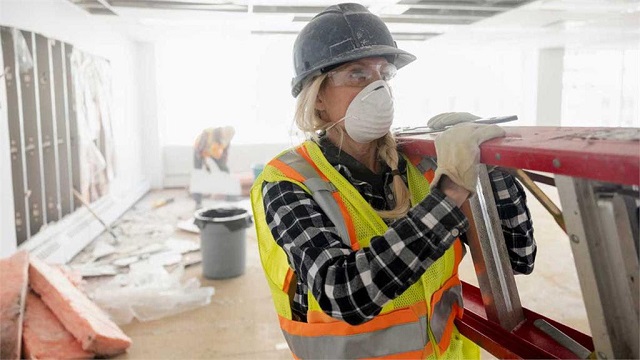
Budget 2024: Maintaining Alberta’s economic advantage
Budget 2024 is a responsible plan that maintains Alberta’s competitive advantage so businesses and industry can continue to innovate, thrive and create jobs.
Budget 2024 puts Alberta on a path of continued economic growth through funding that supports creating jobs, attracting investment and developing a skilled and diversified workforce. Strategic investments will empower job creators and innovators to invest, grow and flourish in Alberta’s diversifying economy.
“Budget 2024 reaffirms our commitment to diversify, attract new investment and provide more jobs that keep Alberta’s engine humming. Strategic investments that support the growth of Alberta cities and promote apprenticeship programming and emission reduction technology will help create more opportunities to build an even stronger Alberta.”
Alberta remains a key driver of Canada’s economic prosperity, accounting for 22 per cent of all jobs created in the country last year, despite having just 12 per cent of the population. Compared with other provinces, Alberta has the highest weekly earnings and the lowest taxes, offering many incentives to newcomers seeking a great place to call home.
To further build on these advantages, Budget 2024 introduces the Alberta is Calling attraction bonus, a $5,000 refundable tax credit aimed at attracting out-of-province workers in the skilled trades. A total of $10 million will be provided to workers.
“The Alberta is Calling attraction bonus will support our government’s commitment to build a skilled and resilient labour force that helps businesses and the economy thrive. We will continue to foster the conditions for growth to ensure Alberta remains the best place to live, work, invest, do business and raise a family.”
Budget 2024 supports the sustainable growth of Alberta’s cities and communities. In addition to $724 million in municipal infrastructure funding through the Local Government Fiscal Framework in 2024-25, Budget 2024 launches the new Local Growth and Sustainability Grant, an application-based program that provides $60 million over three years to enable municipalities to fund infrastructure that supports economic development and addresses unique and emergent needs in their communities.
“We’re pleased to see so many people choosing to move to Alberta to experience the advantages this province has to offer, thanks in part to the strong communities we are supporting through predictable, sustainable funding. We also recognize the pressure this growth can put on local communities. The Local Growth and Sustainability Grant is part of our responsible plan to support a vibrant province and help communities respond to growth opportunities and acute sustainability challenges.”
As Alberta’s economy continues to grow, so does the need to sustain a vibrant and robust workforce to meet the needs of Alberta employers. Budget 2024 addresses current and future potential labour shortages by expanding skills and knowledge in key areas.
More than $100 million in new funding for apprenticeship programs will add 3,200 seats to help meet growing demand at Alberta’s post-secondary institutions. Another $361 million from the Budget 2024 Capital Plan will build and upgrade research and learning facilities in some of the province’s world-class post-secondary institutions. Investments include $63 million to renovate and expand the W.J. Elliott agricultural mechanics building at Olds College and $55 million to increase STEM programming capacity at the University of Calgary.
“Supporting growth in Alberta’s economy means ensuring no region is left behind. Our funding commitments to STEM programming at the University of Calgary and agriculture at Olds will create new opportunities for students in our rural economy and those studying in our largest urban centre.”
The Alberta Petrochemicals Incentive Program (APIP) is helping turn the province into a top global producer of petrochemicals. The APIP provides grants to cover 12 per cent of eligible capital costs for Alberta-based petrochemicals projects. In 2023-24, three projects are expected to receive APIP grant payments totalling $116 million, helping to diversify Alberta’s economy and create jobs.
“Royalties collected from oil and gas fund the things Albertans rely on, like health, education and social services. Budget 2024 supports the government’s mission to strengthen investor confidence and support job creation in communities all while lowering emissions through the use of new technologies.”
Budget 2024 highlights
- $597 million over three years from the province’s TIER (Technology Innovation and Emissions Reduction) fund to support a suite of programs that reduce emissions, support clean technology development, enhance climate resiliency and create jobs for Albertans.
- $1.5 billion for child-care services, an increase of $200 million, enabling more Albertans with young children to participate in the workforce.
- $32 million to build three new water intakes in the Designated Industrial Zone in Alberta’s Industrial Heartland, which will support long-term private investment opportunities in the area.
- Almost $30 million over three years for the Aboriginal Business Investment Fund, an increase of nearly $8 million, to help fund business startup and expansion costs in Indigenous communities.
Budget 2024 is a responsible plan to strengthen health care and education, build safe and supportive communities, manage the province’s resources wisely and promote job creation to continue to build Alberta’s competitive advantage.
Alberta
It’s On! Alberta Challenging Liberals Unconstitutional and Destructive Net-Zero Legislation
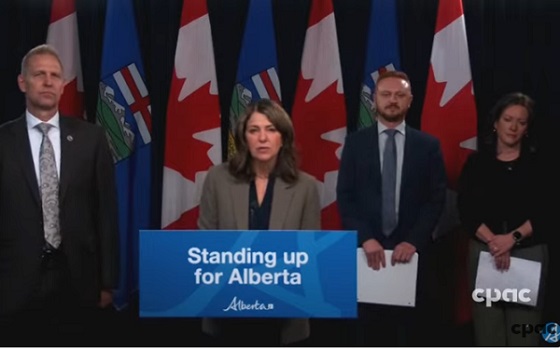
“If Ottawa had it’s way Albertans would be left to freeze in the dark”
The ineffective federal net-zero electricity regulations will not reduce emissions or benefit Albertans but will increase costs and lead to supply shortages.
The risk of power outages during a hot summer or the depths of harsh winter cold snaps, are not unrealistic outcomes if these regulations are implemented. According to the Alberta Electric System Operator’s analysis, the regulations in question would make Alberta’s electricity system more than 100 times less reliable than the province’s supply adequacy standard. Albertans expect their electricity to remain affordable and reliable, but implementation of these regulations could increase costs by a staggering 35 per cent.
Canada’s constitution is clear. Provinces have exclusive jurisdiction over the development, conservation and management of sites and facilities in the province for the generation and production of electrical energy. That is why Alberta’s government is referring the constitutionality of the federal government’s recent net-zero electricity regulations to the Court of Appeal of Alberta.
“The federal government refused to work collaboratively or listen to Canadians while developing these regulations. The results are ineffective, unachievable and irresponsible, and place Albertans’ livelihoods – and more importantly, lives – at significant risk. Our government will not accept unconstitutional net-zero regulations that leave Albertans vulnerable to blackouts in the middle of summer and winter when they need electricity the most.”
“The introduction of the Clean Electricity Regulations in Alberta by the federal government is another example of dangerous federal overreach. These regulations will create unpredictable power outages in the months when Albertans need reliable energy the most. They will also cause power prices to soar in Alberta, which will hit our vulnerable the hardest.”
Finalized in December 2024, the federal electricity regulations impose strict carbon limits on fossil fuel power, in an attempt to force a net-zero grid, an unachievable target given current technology and infrastructure. The reliance on unproven technologies makes it almost impossible to operate natural gas plants without costly upgrades, threatening investment, grid reliability, and Alberta’s energy security.
“Ottawa’s electricity regulations will leave Albertans in the dark. They aren’t about reducing emissions – they are unconstitutional, ideological activist policies based on standards that can’t be met and technology that doesn’t exist. It will drive away investment and punish businesses, provinces and families for using natural gas for reliable, dispatchable power. We will not put families at risk from safety and affordability impacts – rationing power during the coldest days of the year – and we will continue to stand up for Albertans.”
“Albertans depend on electricity to provide for their families, power their businesses and pursue their dreams. The federal government’s Clean Electricity Regulations threaten both the affordability and reliability of our power grid, and we will not stand by as these regulations put the well-being of Albertans at risk.”
Related information
- Conference Board of Canada socio-economic Impacts of Canada’s 2030 Emissions Reduction Plan – (April 2025)
- Alberta Electric System Operator’s position on Canadian Energy Regulations
Alberta
Alberta’s future in Canada depends on Carney’s greatest fear: Trump or Climate Change
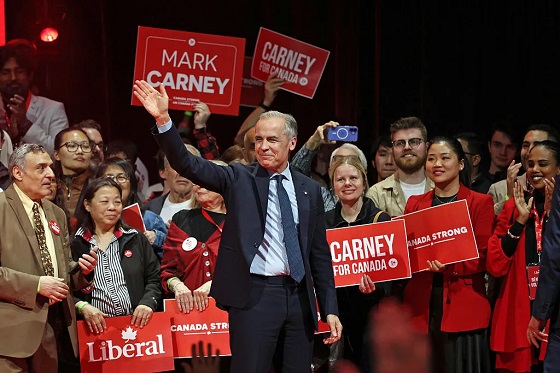
Oh, Canada
We find it endlessly fascinating that most Canadians believe they live in a representative democracy, where aspiring candidates engage in authentic politicking to earn their place in office. So accustomed are Canada’s power brokers to getting their way, they rarely bother to cover their tracks. A careful reading of the notoriously pliant Canadian press makes anticipating future events in the country surprisingly straightforward.
Back in December, when Pierre Poilievre was given better than 90% odds of replacing Prime Minister Justin Trudeau—and Mark Carney was still just an uncharismatic banker few had heard of—we engaged in some not-so-speculative dot-connecting and correctly predicted Carney’s rise to the top spot. Our interest was driven by the notoriously rocky relationship between Ottawa and the Province of Alberta, home to one of the world’s largest hydrocarbon reserves, and how Carney’s rise might be a catalyst for resetting Canada’s energy trajectory. In a follow-up article titled “The Fix Is In,” we laid out a few more predictions:
“Here’s how the play is likely to unfold in the weeks and months ahead: Carney will be elected Prime Minister on April 28 by a comfortable margin; [Alberta Premier Danielle] Smith will trigger a constitutional crisis, providing cover for Carney to strike a grand bargain that finally resolves longstanding tensions between the provinces and Ottawa; and large infrastructure permitting reform will fall into place. Protests against these developments will be surprisingly muted, and those who do take to the streets will be largely ignored by the media. The entire effort will be wrapped in a thicket of patriotism, with Trump portrayed as a threat even greater than climate change itself. References to carbon emissions will slowly fade…
In parallel, we expect Trump and Carney to swiftly strike a favorable deal on tariffs, padding the latter’s bona fides just as his political capital will be most needed.”
The votes have barely been counted, yet the next moves are already unfolding…
“Alberta Premier Danielle Smith says she’ll make it easier for citizens to initiate a referendum on the province’s future in Canada, after warning that a Liberal win in Monday’s election could spur a groundswell of support for Alberta separatism. Smith said on Tuesday that a newly tabled elections bill will give everyday Albertans a bigger say in the province’s affairs.
‘(We’re giving) Albertans more ways to be directly involved in democracy, and to have their say on issues that matter to them,’ Smith told reporters in Edmonton.
If passed, the new law would dramatically lower the number of signatures needed to put a citizen-proposed constitutional referendum question on the ballot, setting a new threshold of 10 per cent of general election turnout — or just over 175,000, based on Alberta’s last provincial election in 2023.”
“US President Donald Trump said on Wednesday that Canadian Prime Minister Mark Carney is looking to make a trade deal and will visit the White House within the next week. Trump said he congratulated Carney on his election victory when the Canadian leader called on Tuesday.
‘He called me up yesterday – he said let’s make a deal,’ Trump told reporters at the White House after a televised Cabinet meeting.”
Remember where you read it first.
-

 Banks2 days ago
Banks2 days agoTD Bank Account Closures Expose Chinese Hybrid Warfare Threat
-
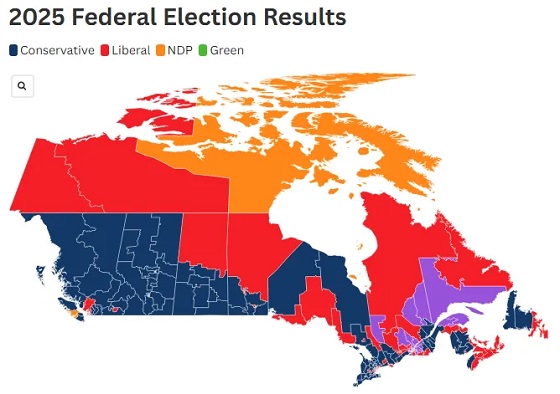
 2025 Federal Election2 days ago
2025 Federal Election2 days agoPost election…the chips fell where they fell
-

 Alberta2 days ago
Alberta2 days agoNew Alberta Election Act bans electronic vote counting machines, lowers threshold for recalls and petitions
-

 Alberta2 days ago
Alberta2 days agoHours after Liberal election win, Alberta Prosperity Project drumming up interest in referendum
-

 espionage1 day ago
espionage1 day agoLongtime Liberal MP Warns of Existential Threat to Canada, Suggests Trump’s ’51st State’ Jibes Boosted Carney
-
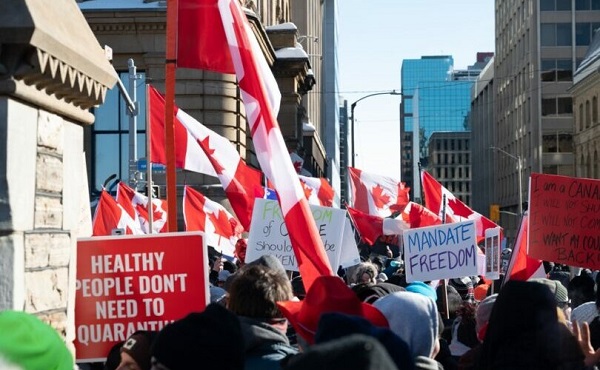
 COVID-192 days ago
COVID-192 days agoFreedom Convoy leaders’ sentencing judgment delayed, Crown wants them jailed for two years
-
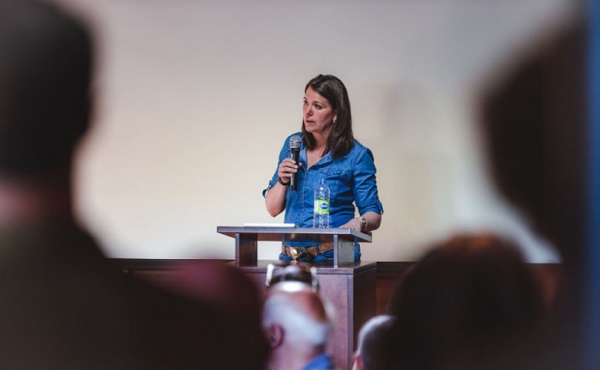
 Alberta2 days ago
Alberta2 days agoPremier Danielle Smith hints Alberta may begin ‘path’ toward greater autonomy after Mark Carney’s win
-
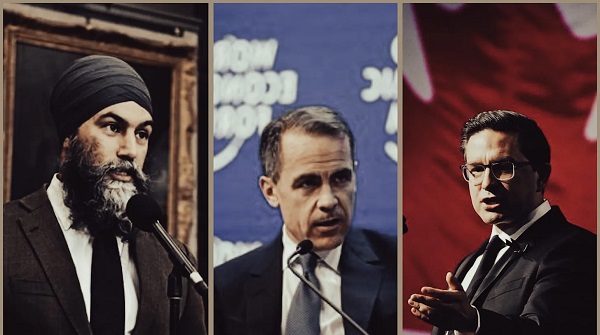
 2025 Federal Election1 day ago
2025 Federal Election1 day agoNDP Floor Crossers May Give Carney A Majority







